InnovADR
Faster, Smarter, Better
Dispute Resolution
- Settle Disputes Within 3-6 Months
- At less than 1/3rd of the Costs of Going to Trial
- On a “No Settlement, No Fee” Basis
- With a >80% Settlement Rate
- Using Mediators and Other Experts, as Needed
The acronym “ADR” has been used by different dispute resolution professionals to mean different things:
- Alternative Dispute Resolution: the term used by domestic judges or lawyers to refer to alternatives to national court systems
- Amicable Dispute Resolution: often the term used by international arbitrators or lawyers to refer to non-adjudicative forms of dispute resolution
At InnovADR, “ADR” stands for “Appropriate Dispute Resolution”. We believe that it is possible to combine different processes as needed, taking care to respect the role and function of each ADR Neutral appointed. This approach focuses on the procedural needs and interests of the disputants using our 7 Key Drivers, and encompasses many more ways of resolving disputes (including adjudicative as well as non-adjudicative processes, as may be needed), which enables the parties to have more flexible as well as faster, cheaper and better access to justice.”
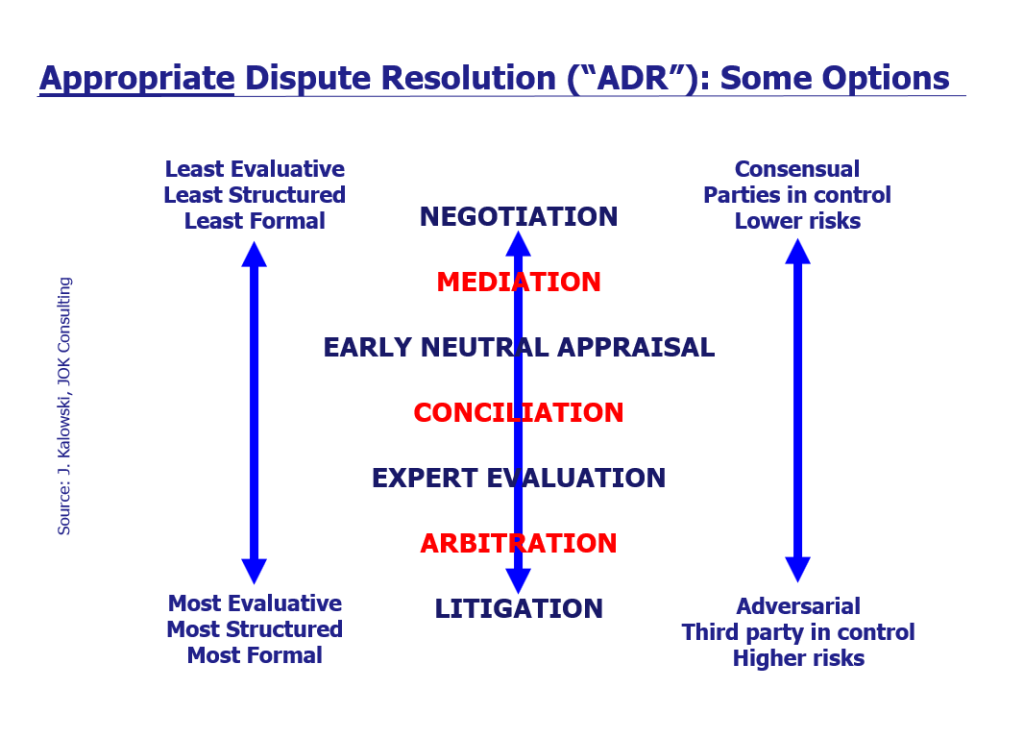
Negotiation
An informal process where
parties attempt to resolve disputes
by themselves.
Mediation
A non-evaluative process where
a neutral third party (mediator)
helps disputants find a mutually
acceptable solution.
Conciliation
Similar to mediation, but may
involve more active advice, evaluative input or settlement proposals
from the conciliator.
Expert Evaluation
An evaluative process, where an expert is asked to give an opinion that may be binding on a specific topic
Arbitration
A more formal process where
a neutral third party (arbitrator)
makes a binding decision on
the dispute.
At InnovADR the term “ADR” also encompasses mixed-mode processes, combining different dispute resolution processes to achieve more efficient, cost-effective, and satisfactory outcomes that are tailored to the specific needs of each case. This approach is influenced by the concept of “Guided Choice” dispute resolution, whereby dispute resolution professions should first try understand each disputant’s procedural needs and interests first, provide a diagnosis based on defined key drivers, and design an appropriate process that meets all of the disputants’ procedural needs based on these key drivers (e.g., time and cost to reaching an outcome, and relationships, and other considerations). This approach is particularly important in international disputes, where national court proceedings may not be enforceable abroad and parties from different legal cultures may have different cultural approaches to resolving disputes.
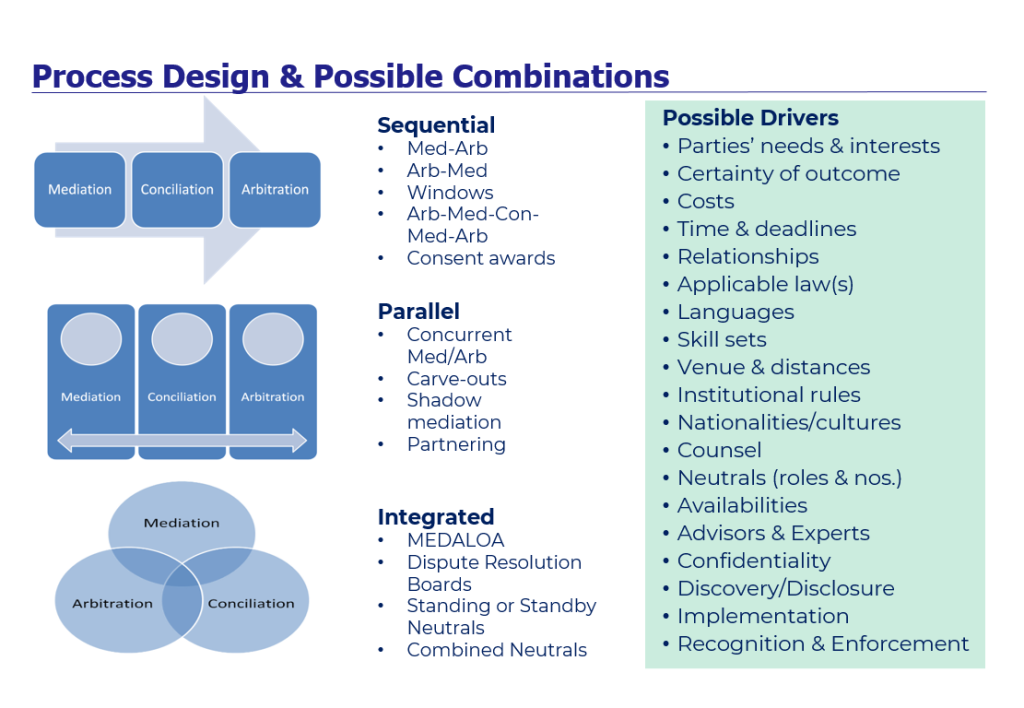
InnovADR’s goal is to help all the parties to consider their procedural needs and interests using 7 key drivers to reach “faster, cheaper and better” outcomes. We believe this is possible in over 80% of disputes based on the following metrics:
The duration of a commercial will usually vary significantly depending on a variety of factors. These include the complexity of the case, the jurisdiction, the efficiency of the legal system and the rules of procedure that apply, and the tribunal’s existing workload. Here are some general points to consider:
- Complexity of the Case: More complex cases, such as those involving multiple parties, intricate legal issues, or large amounts of evidence, typically take longer to resolve.
- Seat of Jurisdiction: Different countries have different legal systems and processes. Some may have more efficient procedures or specialized commercial courts that can handle cases more quickly.
- Legal Procedures: The stages of litigation, including pre-trial motions, discovery, trial, and potential appeals, can extend the time frame. Judges and arbitrators need to provide a binding judgment based on their analysis of the facts and applicable laws. They may need more evidence or submissions before they can make a decision, which can take a lot of time and the need for expert reports to be generated.
- Court Workload: The volume of cases in the court’s docket can impact the speed of proceedings. A court with a heavy caseload may take longer to hear and decide a case.
In general, a commercial dispute in a court or in arbitration proceedings can take anywhere from 1-5 years to resolve. InnovADR’s goal is to help the parties’ resolve their disputes within less than 3-6 months.

FASTER: By way of comparison, the World Bank provides the following examples and estimated number of days for resolving a domestic commercial case valued at several hundred thousand dollars:
- In France : 447 days
- In Italy : 1120 days
- In Japan : 360 days
- In Singapore : 164 days
- In Switzerland : 598 days
- In the UK : 437 days
- In the US : between 555 days (in Los Angeles) and 370 days (in New York)
By “cheaper” we do not mean “cheap”. We mean more “cost-effective” or “smarter”. The cost of resolving a commercial dispute in a commercial court or through an arbitral tribunal varies widely and depends on several factors, but tends to be disproportionately high (greater than 10% of the value of the dispute). Some factors to consider are:
- Legal Fees: These are often the most significant expense. The fees depend on the complexity of the case, the duration of the proceedings, and the rates of the lawyers involved. In some jurisdictions, legal fees can be very high. Lawyers normally charge on an hourly fee basis, although in some countries lawyers are permitted to charge on a “contingency” or “success” fee basis, sharing in the damages they are able to receive for their clients.
- Institutional Fees: Courts and arbitral tribunals charge fees for filing a case and for the proceedings. Arbitral tribunal fees can be particularly high, especially if the tribunal involves renowned experts. Institutional arbitrations also entail adding the costs of the of administering institution, rending arbitration sometimes more expensive than litigation before courts.
- Other Expenses: These can include the cost of expert witnesses, travel expenses (especially relevant for international disputes), and other miscellaneous costs like document production and the taking of evidence from witnesses, or depositions to verify documents or past facts.
- Cost Allocations: In many national court and arbitration proceedings the winning party is entitled to have all or a significant portion of its legal fees and other expenses reimbursed by the losing party. This can significantly impact the overall cost calculus for the losing party.
Arbitration is often perceived as more expensive due to higher tribunal fees. The arbitrators’ fees are paid by the disputants and as well as the costs of any administering arbitration institution. The facilities/location of any hearings also need to be paid for, as well as stenographers, party break-out rooms, arbitrators’ rooms, etc. Arbitration, however, can be quicker than court proceedings, which may reduce overall expenses in some cases. There can also be significant differences in costs between “civil law” countries (e.g., France, Italy, China, Japan and Switzerland) and “common law” countries (e.g., Australia, Ireland, United Kingdom, USA, Singapore) proceedings. Some of these differences are due to the following:
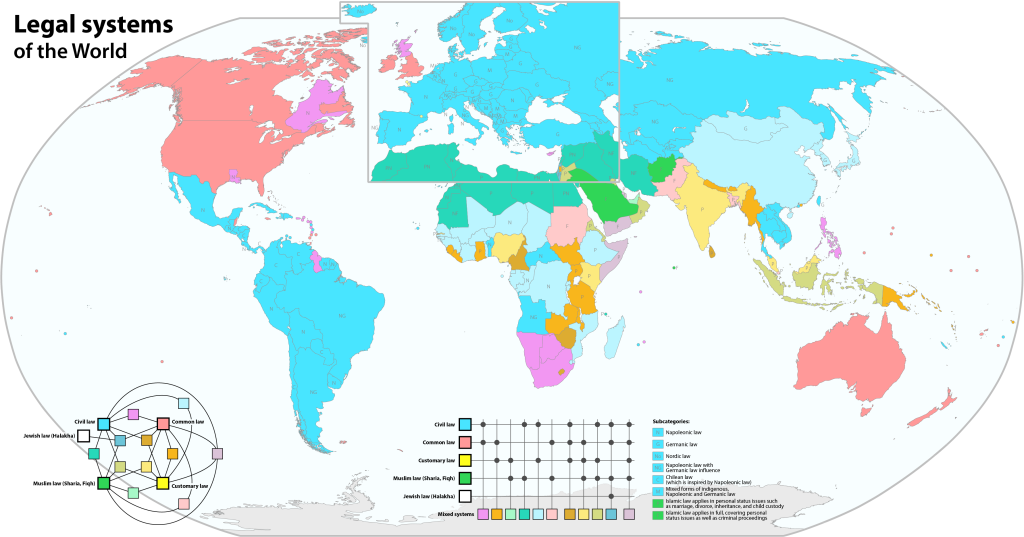
Differences in Costs Between Civil Law and Common Law Proceedings
- Discovery Processes: Common law systems often have extensive discovery processes, which can significantly increase the cost and duration of litigation. Civil law systems typically have more limited discovery, potentially reducing costs.
- Legal Fees: In common law countries, legal fees might be higher due to the nature of the litigation process, which can be more adversarial and require more in-depth preparation and presentation of evidence.
- Use of Expert Witnesses: Common law proceedings often involve the use of party-appointed expert witnesses, which can add to the costs. In civil law systems, courts often rely more court-appointed experts, who tend to be less expensive.
- Length of Proceedings: Common law proceedings can involve lengthier extensive pre-trial processes or the use of juries (even in commercial disputes in some countries), potentially increasing costs. Civil law proceedings are often more streamlined.
- Cost Allocation: In common law jurisdictions, the impact of being ordered to pay a significant portion of the winning party’s costs can substantially impact the overall cost calculus of the losing party. This is especially the case if parallel proceedings need to take place in different courts around the world (e.g., in certain intellectual property dispute cases, where only national courts have subject matter jurisdiction).
The actual costs of commercial litigation or arbitration proceedings can range from tens of thousands to millions of US dollars, depending on these factors and others. It is important for parties involved in such disputes to obtain cost and time estimates from experienced professionals in either commercial court litigation or arbitration, and in the relevant legal system (civil or common law) before resorting to adjudicative processes.
CHEAPER: By way of comparison, the World Bank provides the following examples and estimated percentages of the value of a dispute for resolving a domestic commercial case valued at several hundred thousand dollars:
- In France: 17.4% of claim value
- In Italy: 27.6% of claim value
- In Japan: 23,4% of claim value
- In Singapore: 25.8% of claim value
- In Switzerland: 24% of claim value
- In the UK: 45.7% of claim value
- In the US: 42% of claim value.
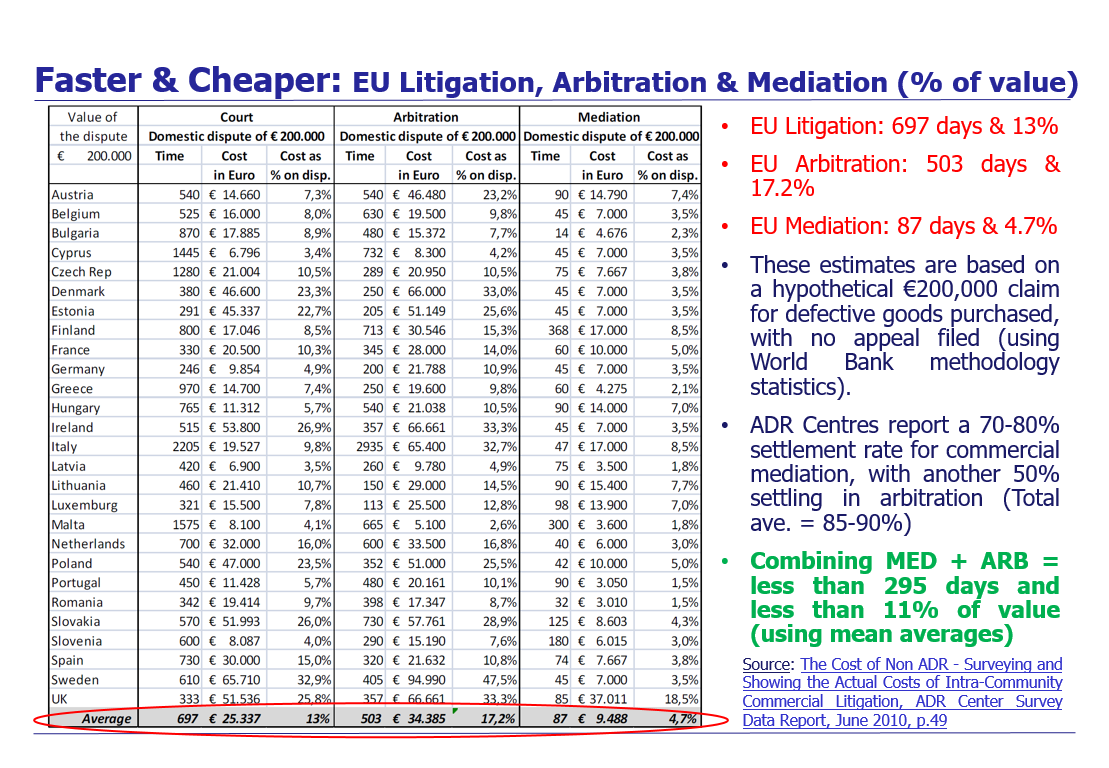
- Greater Cooperation: Starting with mediation first and focusing on procedural needs and interests upfront reduces the hostility between parties, and leads to a more amicable dispute resolution process. This reduced animosity can be beneficial for future interactions between the parties as well as counsel. Working with InnovADR allows for tailored solutions, better addressing procedural needs, concerns and interests, through InnovADR’s analysis of the 7 key drivers it has identified and tracks.
- Flexibility and Control: Parties have more control over the process and the outcome. They can start with mediation to negotiate and if that fails, move to arbitration for a binding decision. This blend allows for a more dynamic and adaptable dispute resolution process. Working with a mediator and other ADR neutrals also offers the flexibility to craft remedies beyond monetary damages, like renegotiating contracts or securing more favorable terms taking into consideration a broader range of needs and interests (e.g., how to mutually increase revenues and profitability).
- Relationship Preservation: InnovADR’s process design system focuses on better collaboration and mutual understanding between the parties and their counsel. This approach can preserve and sometimes even strengthen business relationships. The processes includes focusing on underlying concerns looking to the future, aiding in maintaining business relationships, whereas court or arbitration battles can be adversarial and harm relationships.
- Confidentiality: InnovADR helps to design proceedings that respect the need for transparency, but that can also offer greater privacy, protection of trade secrets or confidential business information, without risk of media attention or reputational damage.
- Targeted Expertise: Parties can work with the 1st ADR Neutral selected to select additional ADR Neutrals with specific expertise relevant to their dispute or to target specific issues, which is particularly beneficial for complex commercial or technical matters.
- Empowerment and Guidance: InnovADR’s tools, like its Application Form and Due Diligence Questionnaire, help parties understand and choose suitable ADR processes and neutrals more quickly and earlier on, preventing conflict escalation, and simplifying procedures.
- Finality and Enforceability: If mediation does not lead to a resolution, arbitration can provide a binding decision. This finality can be more appealing compared to the potential for prolonged litigation with appeals. Arbitration also allows enforceability under the New York Convention on the Recognition and Enforcement of Foreign Arbitral Awards, providing greater business certainty (if needed).
- Higher Satisfaction: InnovADR’s approach towards process design is likely to lead to higher satisfaction with the dispute resolution process and its outcomes, as it incorporates all parties’ efforts to negotiate and provides the framework for a formal decision-making process in ways that are likely to be faster, more cost-effective and ensuring greater self-determination.
- ESG & SDG Compliance: InnovADR’s approach to dispute resolution and inclusion of Online Dispute Resolution (ODR) considerations can significantly contribute to increased compliance with Environmental, Social, and Governance (ESG) criteria and the United Nations’ Sustainable Development Goals (SDGs), in particular Goals 8 (stable and sustainable outcomes assisting economic growth), 16 (increasing access to peace and justice), and 17 (promoting greater partnership in process design and collaboration in seeking mutually acceptable outcomes).

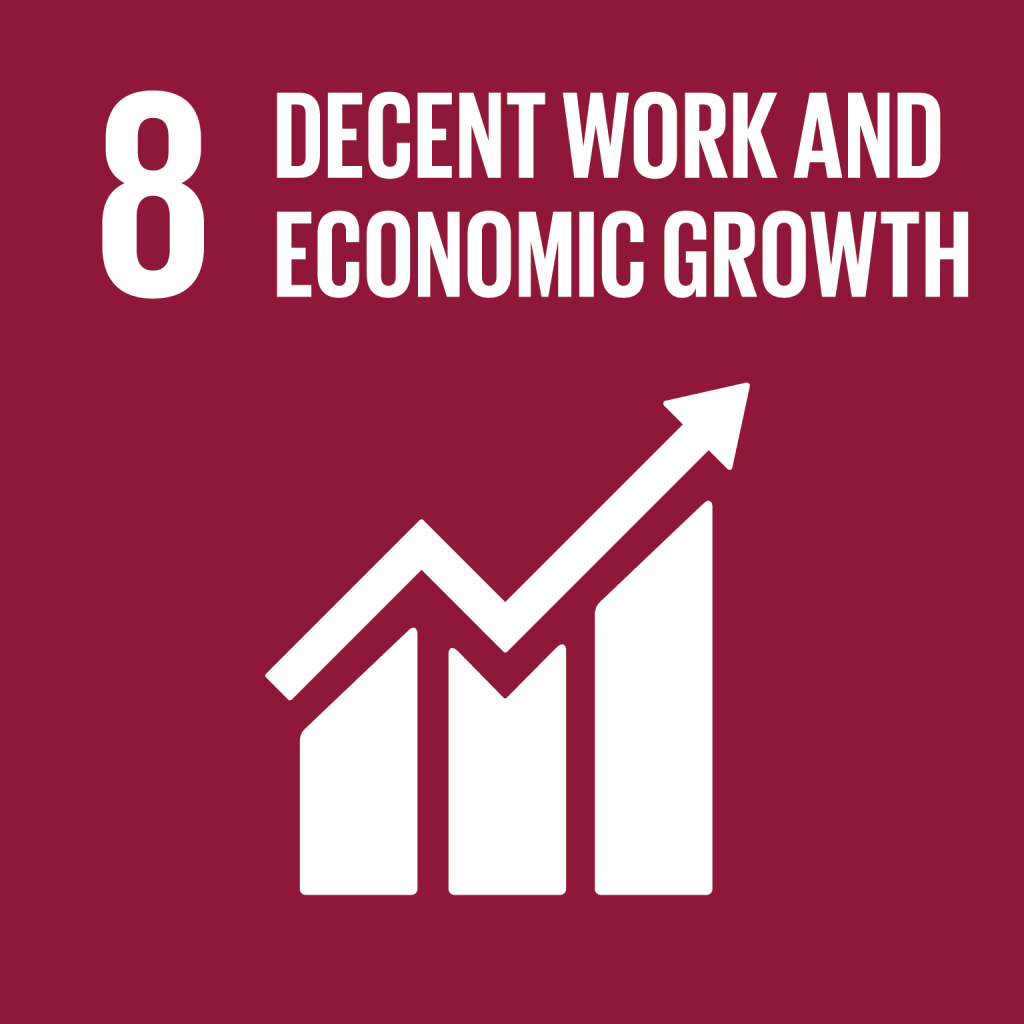
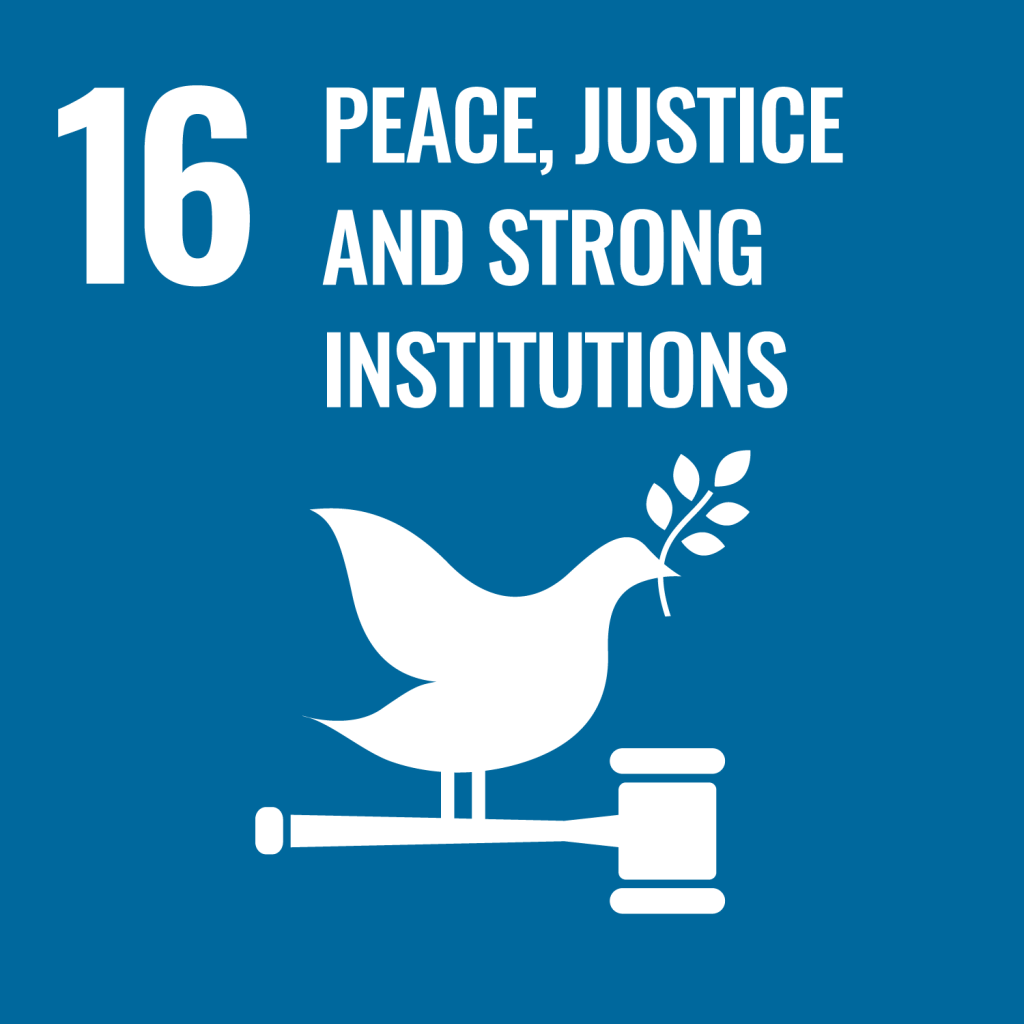

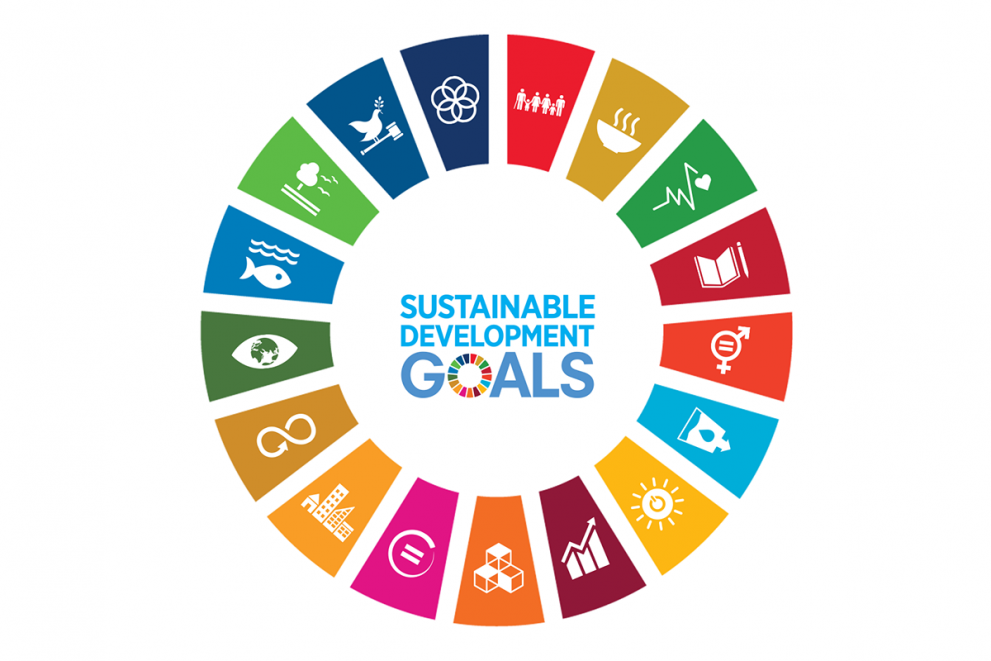
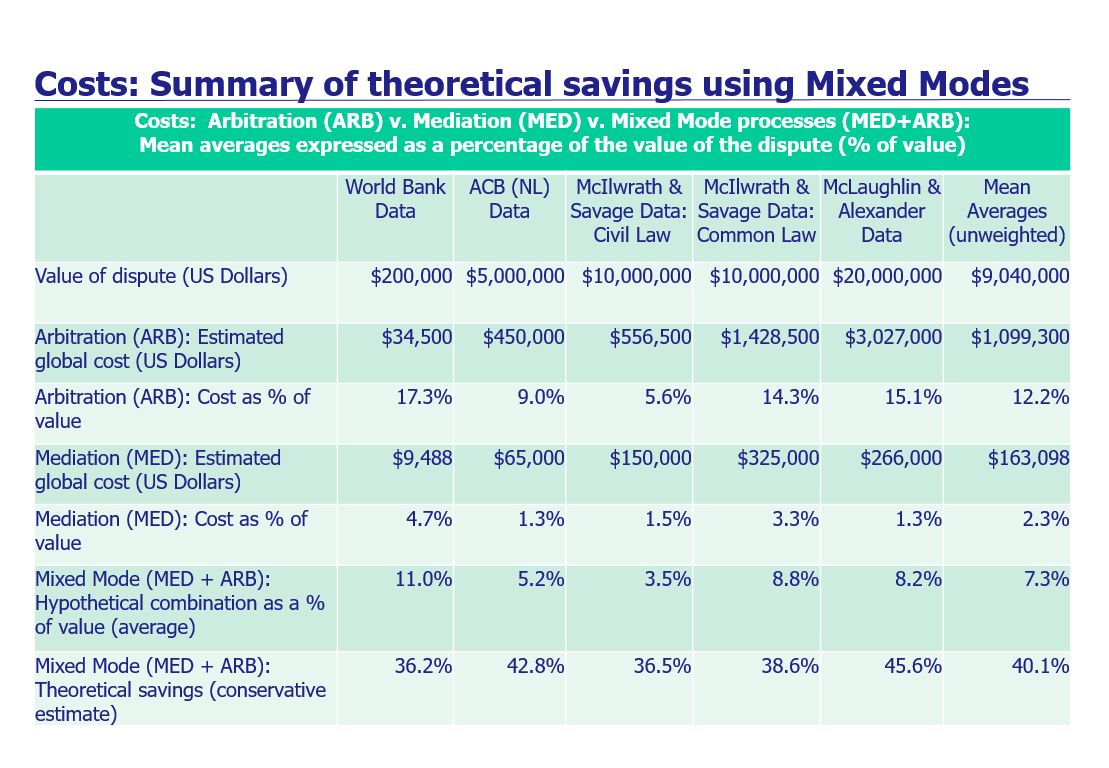
- Settlement rates: >80%
- Time to settlement: less than 3-6 months
- Fees: Capped and fixed (< 1/3 of the costs of going to trial)
- Savings: At least 2/3 of the costs of going to trial or arbitration
- Risk: No exposure if the case does not settle within 18 months
- Satisfaction: We aim for >90% satisfaction ratings
- International: >50 leading international ADR experts from >20 countries
- Cost-Effective: Reduce legal spend to < 5% of the value of any dispute and resolve it in a fraction of the time
- Innovation: Use of Mixed Modes to design optimal bespoke processes
- Simplicity: Simple forms and algorithms designed to help parties save time and work cooperatively.
InnovADR is a services provider and an online platform dedicated to facilitating amicable dispute resolution processes. It assists disputants in diagnosing, designing, implementing and even (if needed) financing their disputes on a “no settlement, no fee” basis.
InnovADR’s ADR Facilitation and Investment Agreement is a framework agreement for guiding the resolution of disputes. It suggests the roles, responsibilities, and procedures for the parties involved, emphasizing efficiency and fairness in dispute resolution.
InnovADR’s advisory services include conflict diagnosis and process design. It can also assist in implementing ADR processes, including for the appointment of suitable ADR neutrals given the particularities of each case and to set up “mixed mode” ADR processes, if needed (e.g., combining mediation with arbitration or mediation and conciliation). Key features include our independence, commitment to confidentiality and discretion, personalized dispute resolution processes, and a focus on amicable settlements that are tailored to a broad range of needs (including the need to maintain good relationships). InnovADR also provides expert neutrals for mediation, conciliation, or arbitration. It boasts a high settlement rate and deep experience in the field, with over 80% of cases settling in less than six months in more than 400 cases. This leads to substantial savings for clients, often over two-thirds of predicted litigation expenses. The savings are achieved through InnovADR’s efficient process design and its focus on amicable dispute resolution.
InnovADR’s Confidentiality & Security Policy ensures that all information provided on its platform is treated with the utmost care and discretion. Its systems comply with GDPR, Swiss Data Protection laws and other relevant data protection laws, using secure AWS infrastructure in Zurich, Switzerland to store all data on its platform.
Our services are available to any parties involved in disputes seeking an efficient, confidential, and rapid resolution. This includes individuals, businesses, and legal professionals. While some of our advisory work (e..g., diagnosing or designing ADR proceedings) may be done at the request of one party, we always provide solutions that should work for all disputants, regardless of who is paying us. Our “no settlement, no fee” financing option, if chosen, can be initiated by one party, but subject to it being accepted by all of the parties, or their reaching an agreement regarding its adoption.
Our advisory services (e.g., diagnosing, designising or implementing) ADR processes may involve a fee, based on time spent and subject to a cap on fees to ensure adequate savings for the client in each case. We discuss and agree to our fees upfront, which may include a success fee bonus, if appropriate. Our ADR financing service operates on a “no settlement, no fee” basis, meaning the fees in this case are contingent on successfully reaching a settlement. Specific fee structures are outlined in the ADR Facilitation and Investment Agreement in such cases. An Administrative Fee of USD 1’000 is charged when an agreement is first signed.
InnovADR is equipped to handle a wide range of disputes, though the specifics can be determined through consultation and an assessment of the dispute’s nature and complexity. We have been involved in a broad range of cases including family disputes, inheritances, trusts, estates, corporate disputes, family business disputes, family offfices, intellectual property disputes, construction disputes, engineering disputes, sports disputes, intellectual property disputes, investor-state disputes, etc.
InnovADR does not act to benefit one disputant at the destriment of another. Our diagnostic, design, implementation and financing services are all provided to the disputants in the same way, whether they are initially financed or requested by one party, some of the parties, or by all of the parties collectively. InnovADR does not provide ADR neutrals, but helps the parties to appoint experienced and appropriate dispute resolution professionals for each cae, who are capable of providing the type of ADR process(es) requires and who are paid in such a way as to ensure there will be no bias or conflict of interest with respect to their appointment. Any solution remains the decision of the parties.
Parties can initiate the process by registering on InnovADR’s online platform as a Requesting Party, Anonymous Person, or Responding Party and providing relevant details about their dispute. InnovADR can also initiate a process as a Non-Essential Party based on published information or if asked to do so. InnovADR then assesses and guides the parties to determine the appropriate resolution process. Finally, anyone can initiate a request for services by writing to info@innovadr.com.
Yes, feedback is welcomed. Users can contact InnovADR via their official communication channels for any feedback, concerns, or complaints.
InnovADR has a cap on the costs of any services it offers to ensure it is proportional and likely to save clients considerable fees. This includes a 1/3 cap as compared to the costs of going to trial, including the fees of any ADR neutrals, institutions, experts and counsel, up to a specified maximum amount. This cap is determined per case. In addition, if its financing services are used, InnovADR covers the ADR neutral(s) fees for a fixed capped amount (maximum 1/3 of the anticipated costs of going to trial, as assessed by all of the disputants per matter), irrespective of the value of the dispute or the settlement’s outcome.
InnovADR’s success fee is contingent on the case settling within eighteen months (usually within 3-6 months). For our advisory services (diagnosing or designining) or our implementation services (helping to appoint neutrals or put an appropriate process into effect) it is based on time subject to a cap, and can be based on a pre-agreed fee and a possible success fee. For our financing services, it is capped to 1/3 of multiple of the capped amount, usually ranging between 4-10 times, and is capped at less than 33% of the estimated litigation or arbitration fees. This fee structure is intended to generate significant savings for all parties involved. Our success fees are fundamentally designed to align our interests with those of all of the disputants. No success fee is due if there is no mutually satisfactory outcome for all of the parties involved. This is one of the ways in which InnovADR distinguishes itself as an independent and impartial services provided.
InnovADR’s process design aims for a speedy resolution — within 3-6 months, depending on the parties’ collective needs. This can entail helping a preliminary settlement being reached and then helping the parties to implement it, but in that case, as a joint advisor working for the benefit of all of the parties. Our key objective is to increase cost-efficiency and reduce the time to outcome. Of the over 400 cases we have helped settle to date, we have done so in less than 6 months (with rare exceptions) and settlement rates well in excess of 80%. This is part of InnovADR’s commitment to efficiency and cost-effectiveness.
InnovADR’s process design is underpinned by seven critical factors, collectively known as the “7 Key Drivers.” These drivers are essential in guiding the approach and ensuring effective dispute resolution:
- Reduced Costs: InnovADR focuses on minimizing the financial burden of dispute resolution. By offering cost-effective solutions, clients can expect significant savings compared to traditional litigation or arbitration expenses.
- Time to Outcome: Speed is a critical aspect of InnovADR’s approach. The aim is to resolve disputes efficiently, with a high settlement rate achieved in a short time frame, typically within less than three to six months.
- Process Control: InnovADR empowers the parties involved in a dispute to have greater control over the process. This includes decisions regarding the selection of neutrals, the timing of proceedings, and other key procedural aspects.
- Outcome Control: Parties have more influence over the outcome of their disputes. InnovADR facilitates a process where the involved parties can negotiate and reach mutually agreeable solutions.
- Relationship Preservation: The methods employed by InnovADR are designed to preserve, and often enhance, the relationships between disputing parties. This is particularly valuable in situations where ongoing relationships are important.
- Enforceability: Solutions reached through InnovADR are not just amicable but also designed to be legally enforceable. It seeks outcomes that are respected and upheld domestically and internationally.
- Confidentiality: InnovADR prioritizes the confidentiality of the dispute resolution process. Sensitive information is protected, ensuring privacy and discretion for all parties involved.
By integrating these key drivers, InnovADR provides a holistic and efficient approach to dispute resolution, tailored to meet the unique needs of each case while aligning with broader objectives like ESG (Environ-mental, Social, and Governance) and the UN’s Sustainable Development Goals (SDG).
InnovADR’s approach to dispute resolution and the way it provides its services are closely aligned with Environmental, Social, and Governance (ESG) objectives and the United Nations’ Sustainable Development Goals (SDGs). Here’s how:
- ESG Compliance:
- Environmental: While not directly involved in environmental management, InnovADR’s pro-cesses, being primarily digital and online, reduce the carbon footprint associated with tradi-tional dispute resolution methods (like travel for in-person hearings). It also reduces paper waste and extensive discovery proceedings.
- Social: InnovADR promotes access to justice and social good by ensuring fair, efficient, rapid and cost-effective dispute resolution. This approach helps maintain and improve relationships between parties, fostering a more harmonious and socially responsible business environ-ment.
- Governance: The platform adheres to strict governance standards, including transparency, ethical conduct, and accountability in its operations and dispute resolution processes.
- Alignment with UN Sustainable Development Goals (SDGs):
- SDG 16: Peace, Justice, and Strong Institutions: InnovADR directly contributes to this goal by providing accessible, efficient, and fair justice solutions. Its focus on amicable dispute reso-lution supports the development of peaceful societies and strengthens institutions by reduc-ing the burden on traditional legal systems.
- SDG 17: Partnerships for the Goals: Through its collaborative approach, InnovADR fosters partnerships among disputing parties, legal professionals, and other stakeholders. This col-laboration is key to achieving broader SDGs.
- Reduced Waste: InnovADR’s digital-first approach minimizes physical waste, aligning with environmental sustainability goals.
InnovADR’s supports green pledges and adherence to ESG principles and alignment with specific SDGs. It is committed to contributing positively to societal and environmental goals while helping to maintain robust governance standards.
- Using Appropriate Dispute Resolution: When to Use Negotiation, Litigation, Arbitration, Conciliation and/or Mediation for Commercial Disputes: http://lawtech.ch/wp-content/uploads/2022/06/LAWTECH-Presentation-Using-Appropriate-Dispute-Resolution-When-to-use-what-why-and-how-much-1.pdf.
- The IMI Decision Tree: https://imimediation.org/resources/decision-tree/#decision-tree
- The IMI Mixed Mode Taskforce page: https://imimediation.org/about/who-are-imi/mixed-mode-task-force/
- The Universal Disclosure Protocol for Mediation (UDPM): https://universaldisclosureprotocolmediation.com/support-the-udpm/
- The Green pledge:
- The Mediators Green Pledge: https://womacc.org/mediators-green-pledge/
- The campaign for greener arbitrations: https://www.greenerarbitrations.com/sign-green-pledge
- Guided Choice Early Dispute Resolution: https://gcdisputeresolution.com/
- Mundi Mediatores: https://www.mundimediatores.com/
- LAWTECH.CH Useful Information: http://lawtech.ch/useful-information/
- Articles on process design and Mixed Modes:
- Appropriate Dispute Resolution (ADR): The Spectrum of Hybrid Techniques Available to the Parties in ADR, Chapter 17 in Business, Practice and Issues Across Countries And Cultures (Kluwer Law International, edited by A. Ingen-Housz, 2011), pp. 339-79
- Using a Guiding Mediator to Help the Parties Design Bespoke Dispute Resolution Processes: https://imimediation.org/2021/05/04/using-a-guiding-mediator-to-help-the-parties-design-bespoke-dispute-resolution-processes/
- Addressing the IP Dispute Resolution Paradox: Combining Mediation with Arbitration and Litigation: https://globalarbitrationreview.com/guide/the-guide-ip-arbitration/second-edition/article/addressing-the-ip-dispute-resolution-paradox-combining-mediation-arbitration-and-litigation
